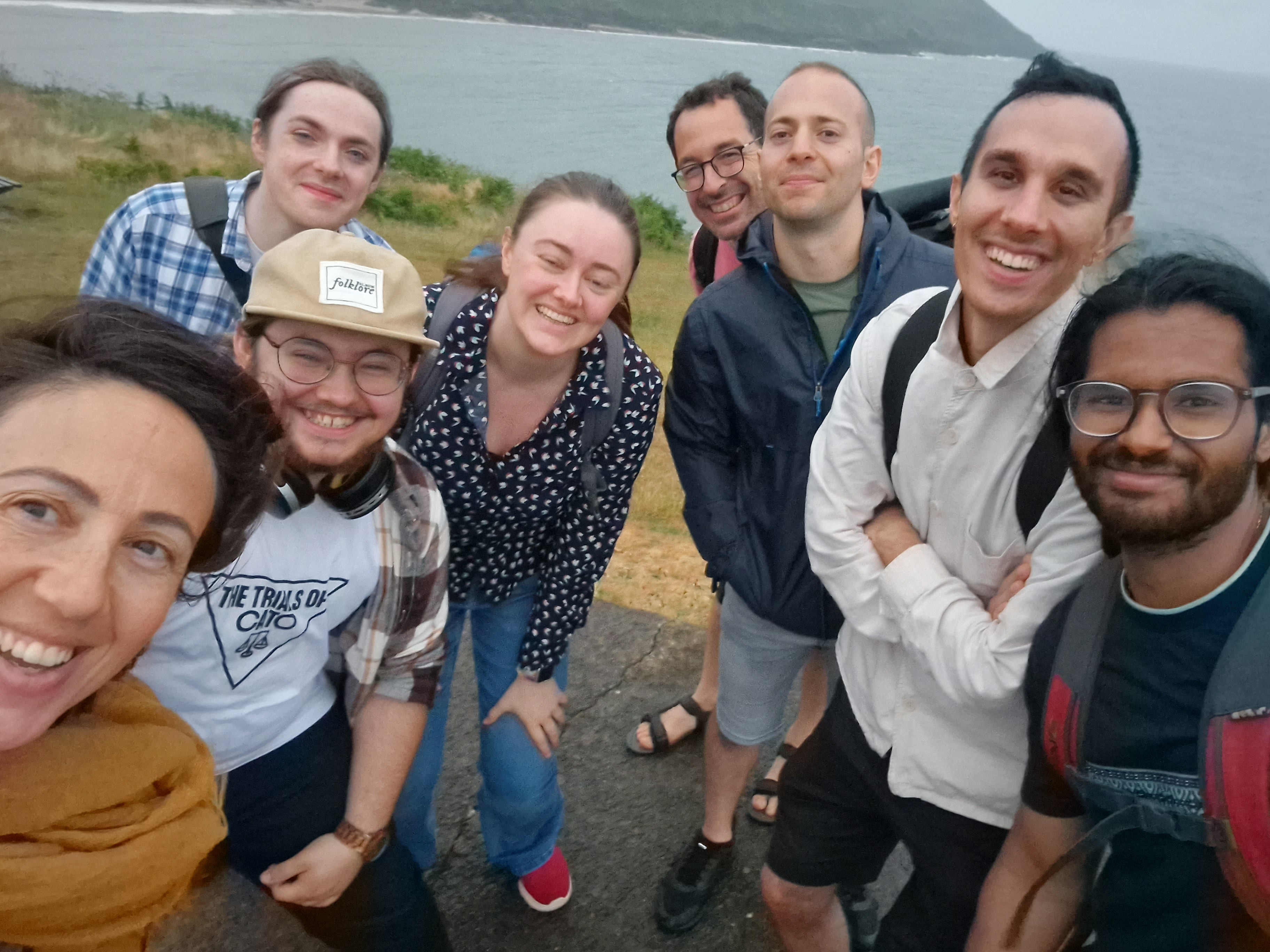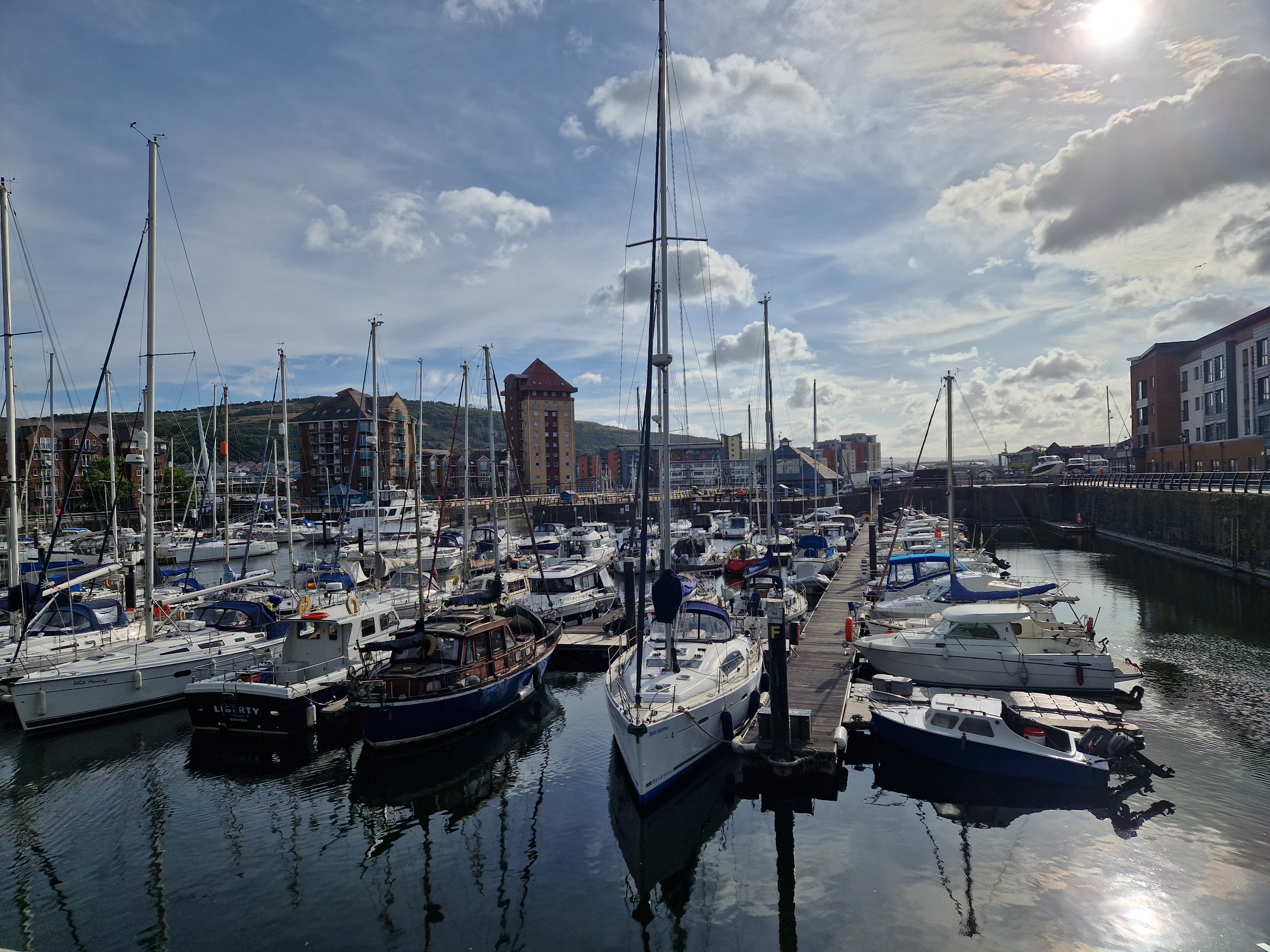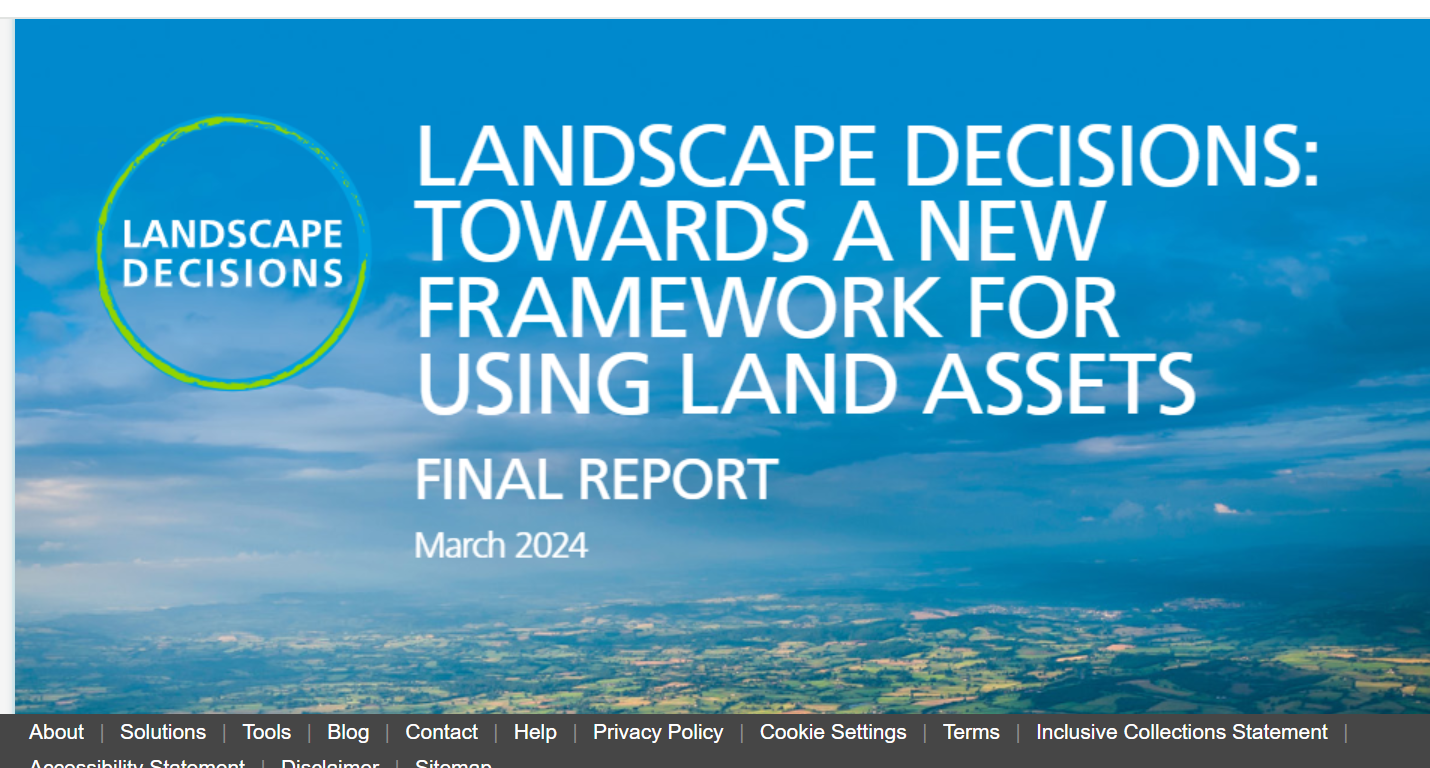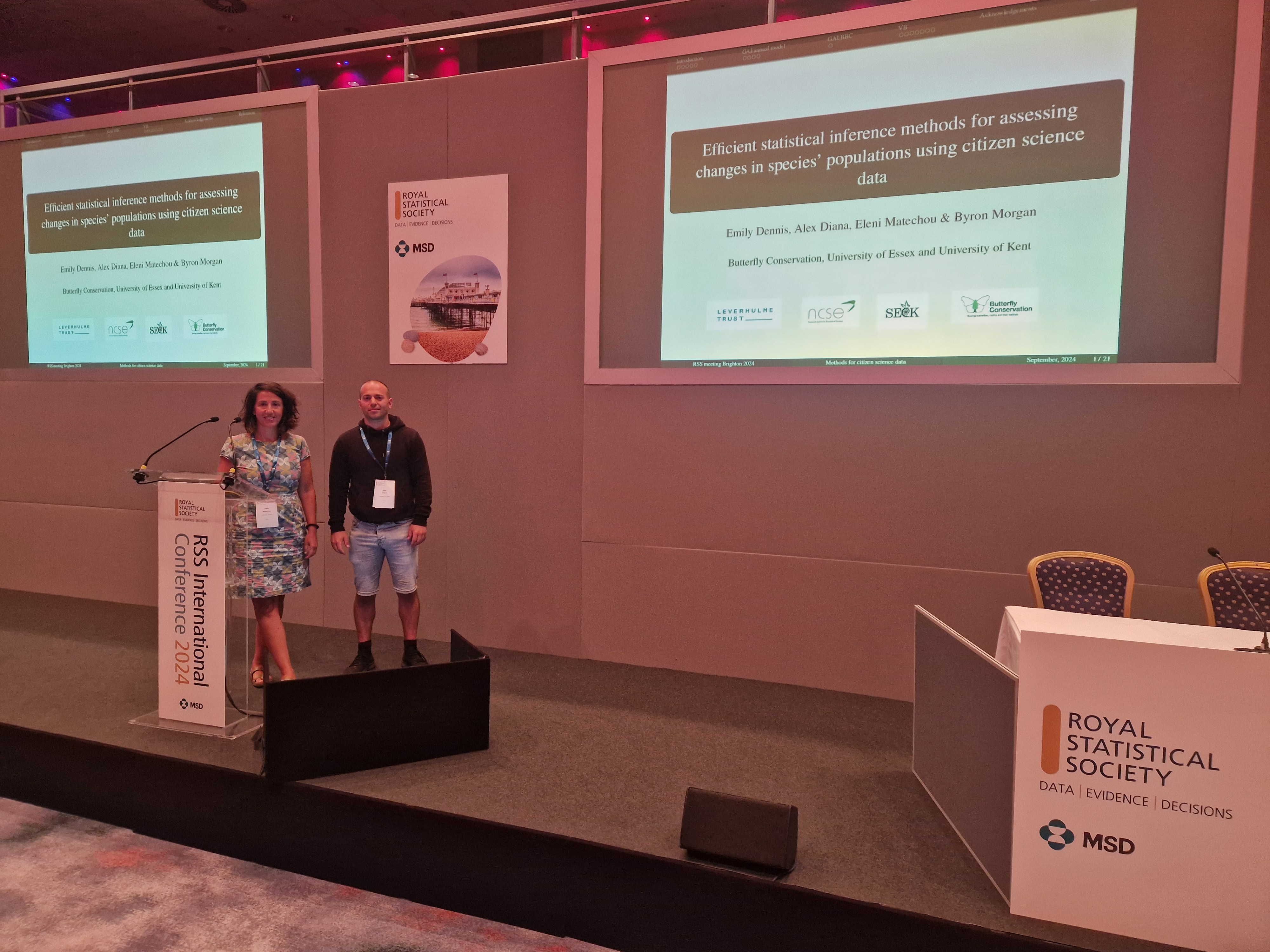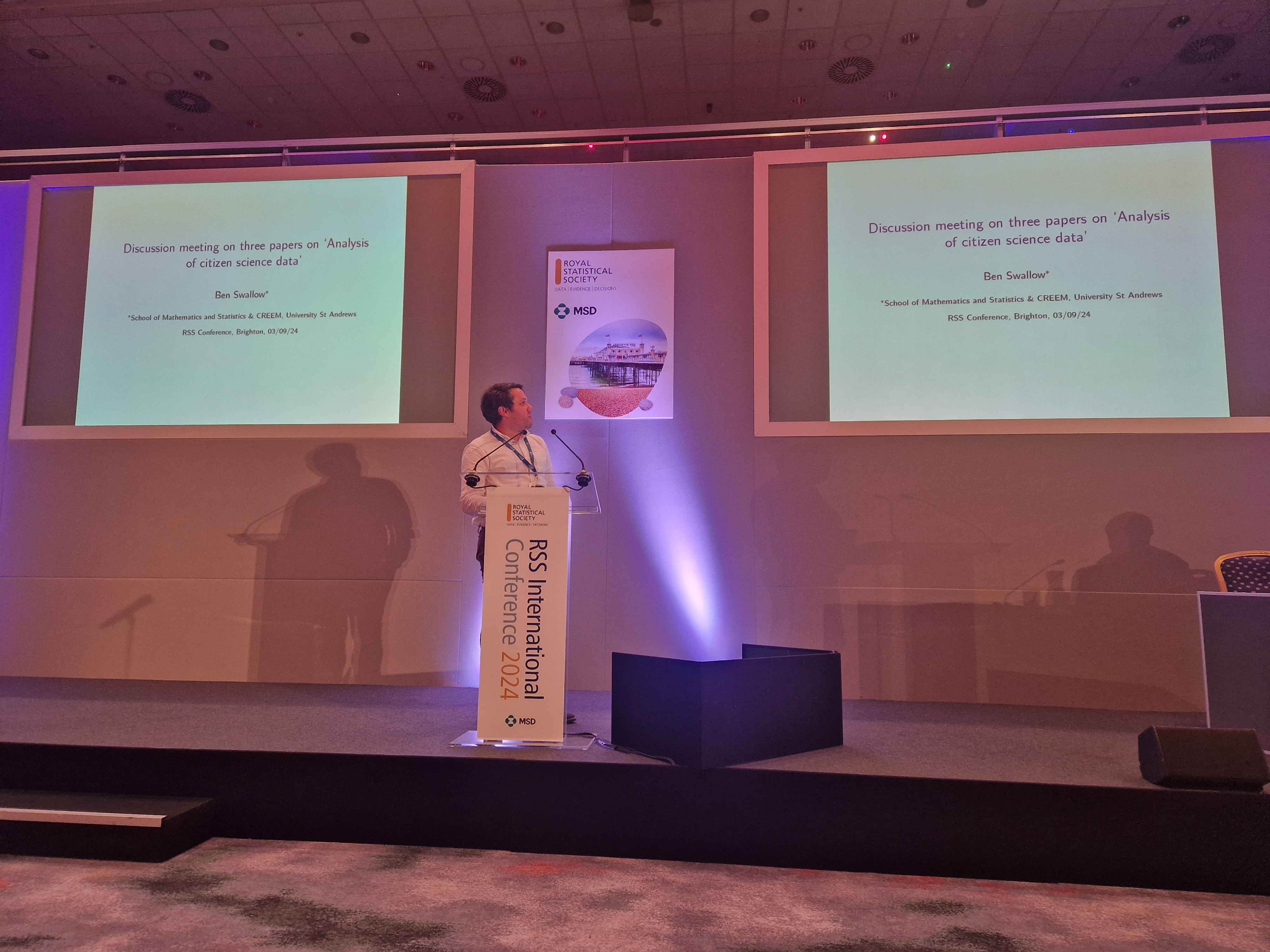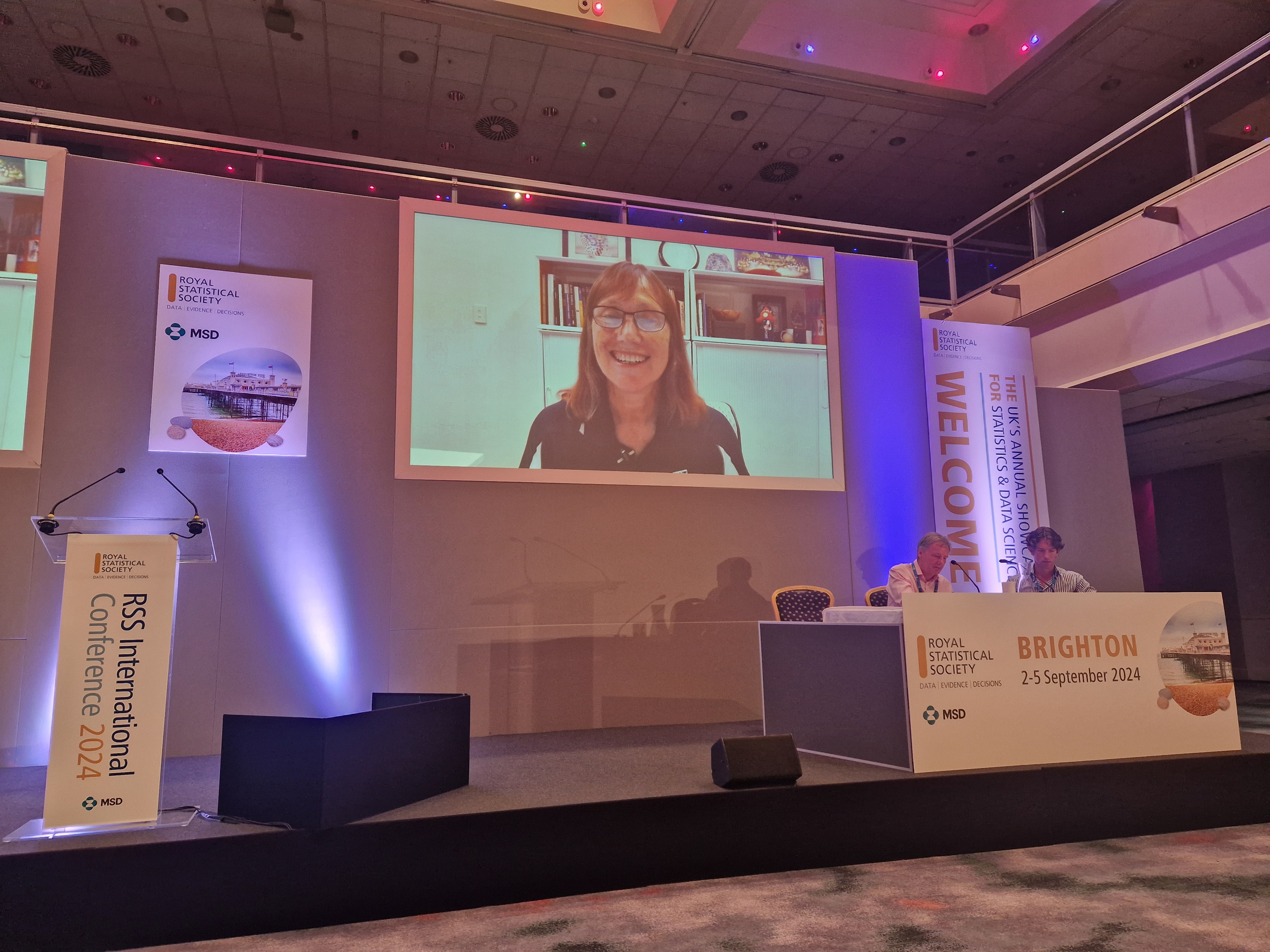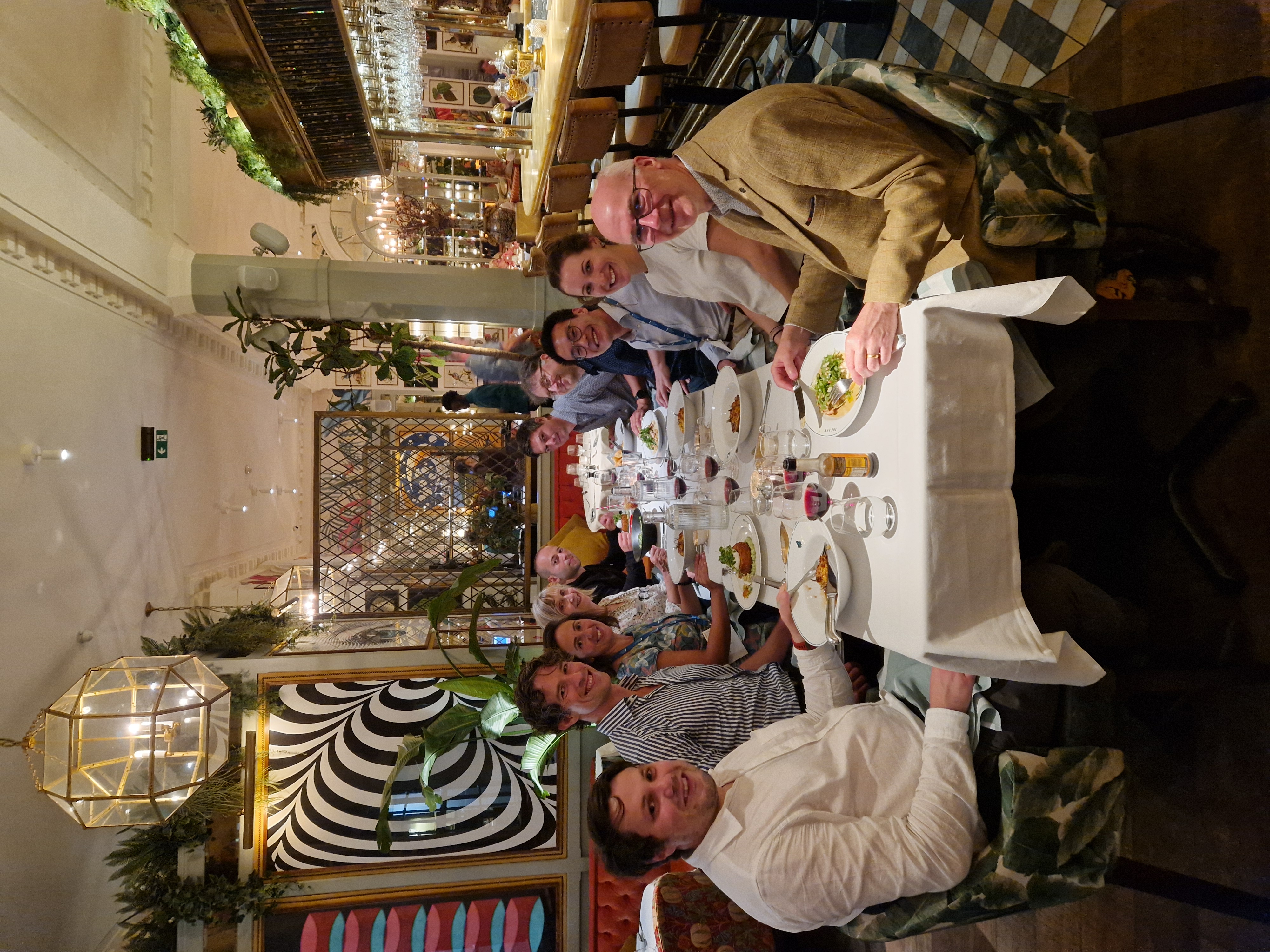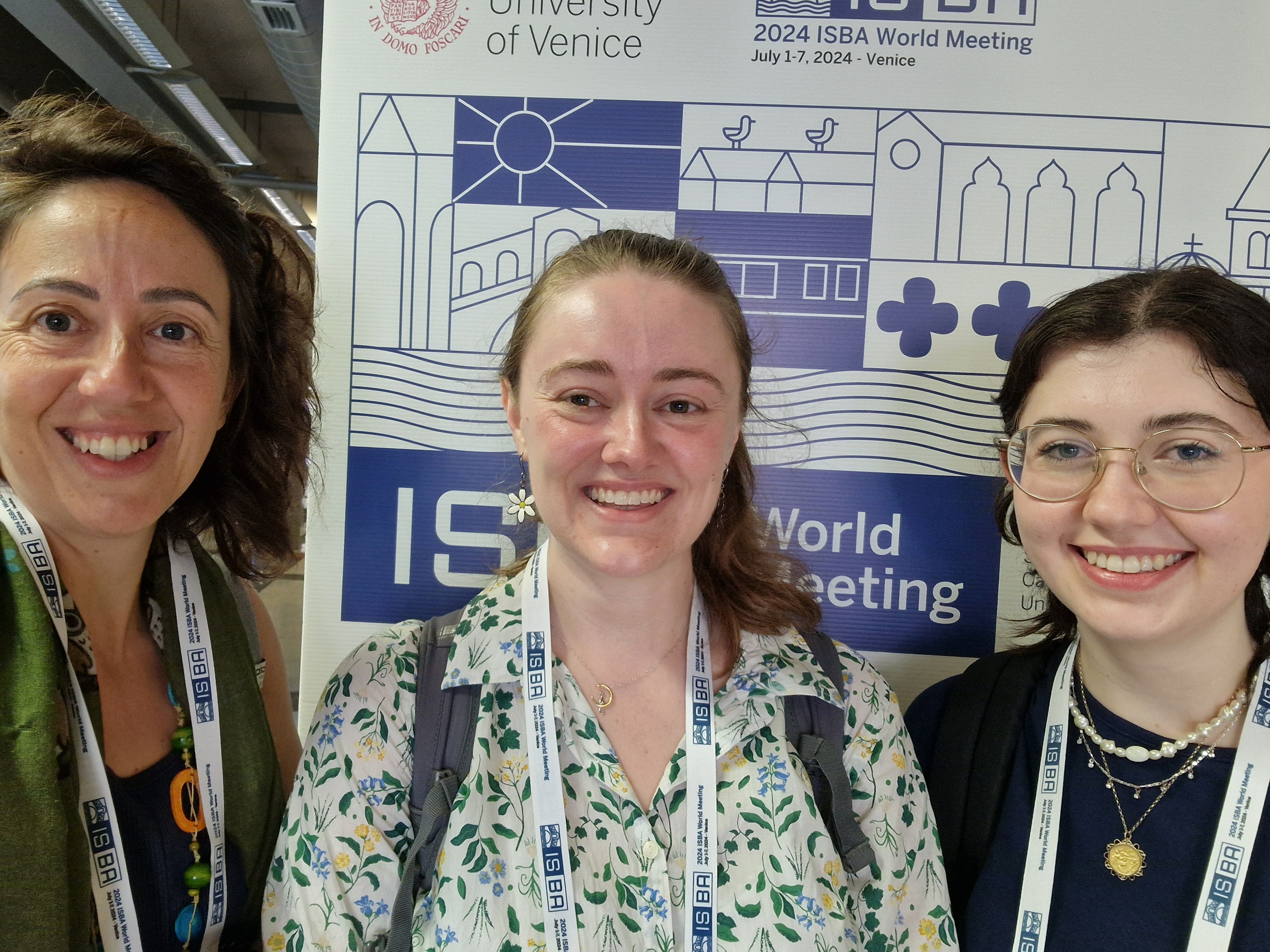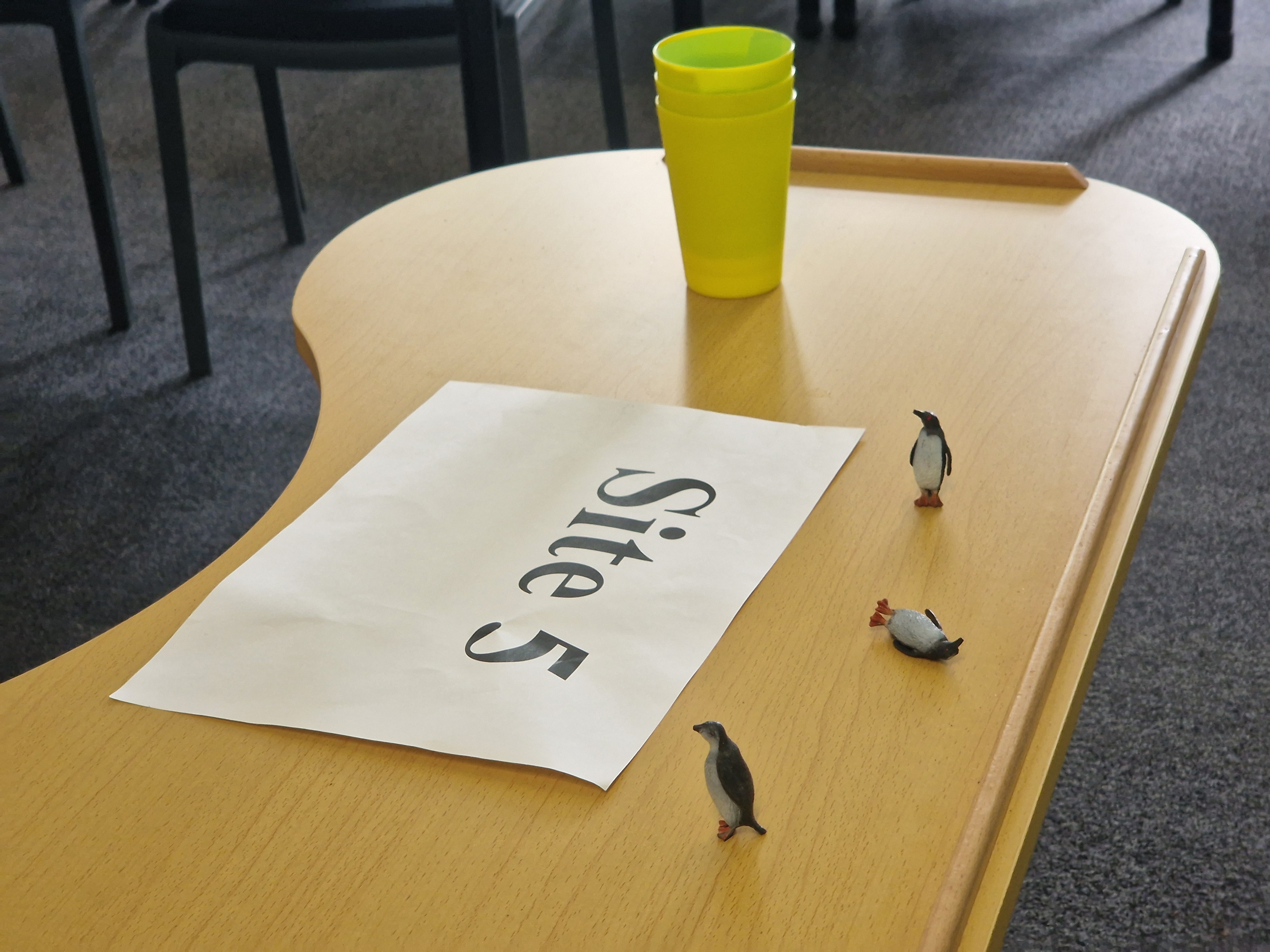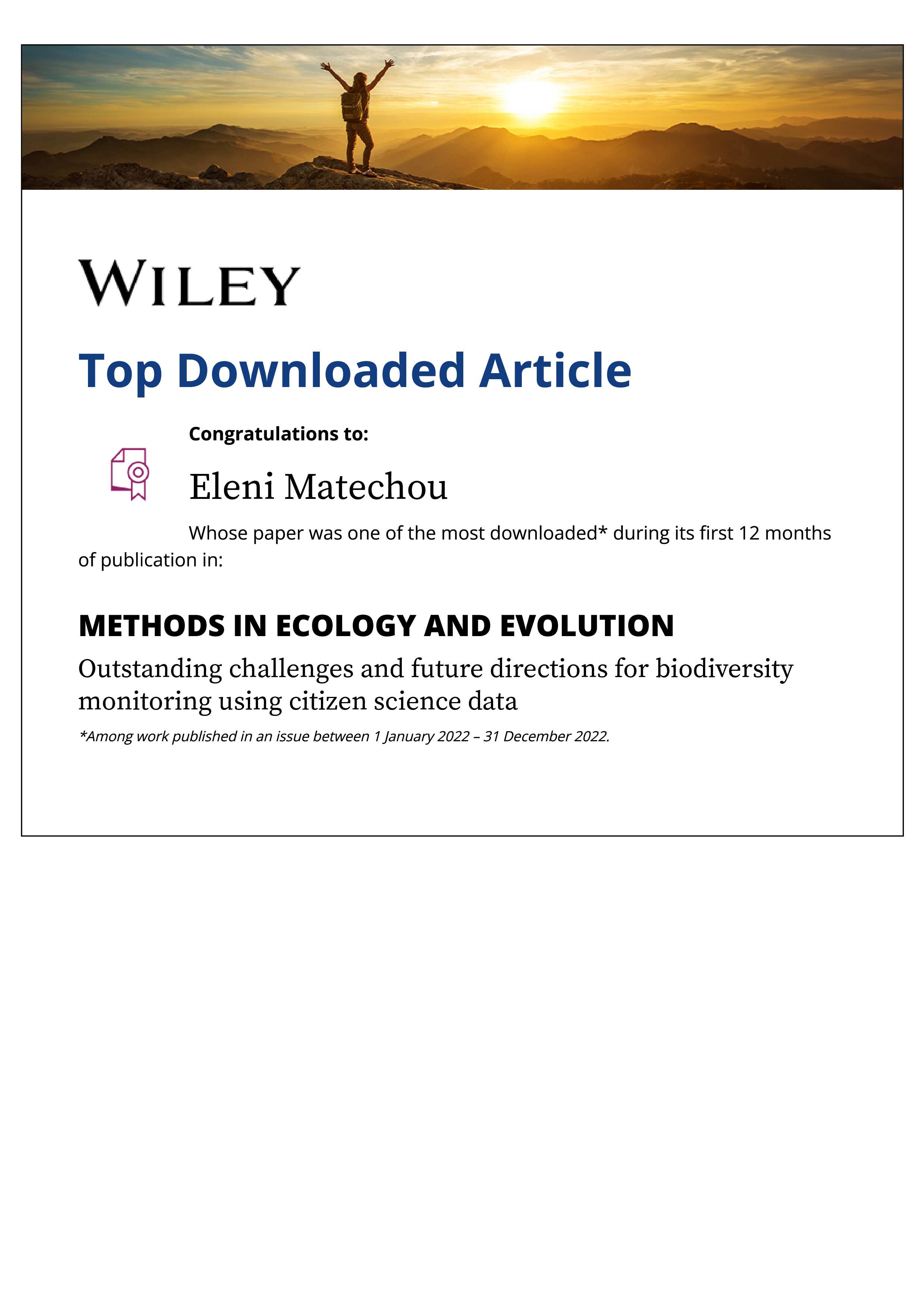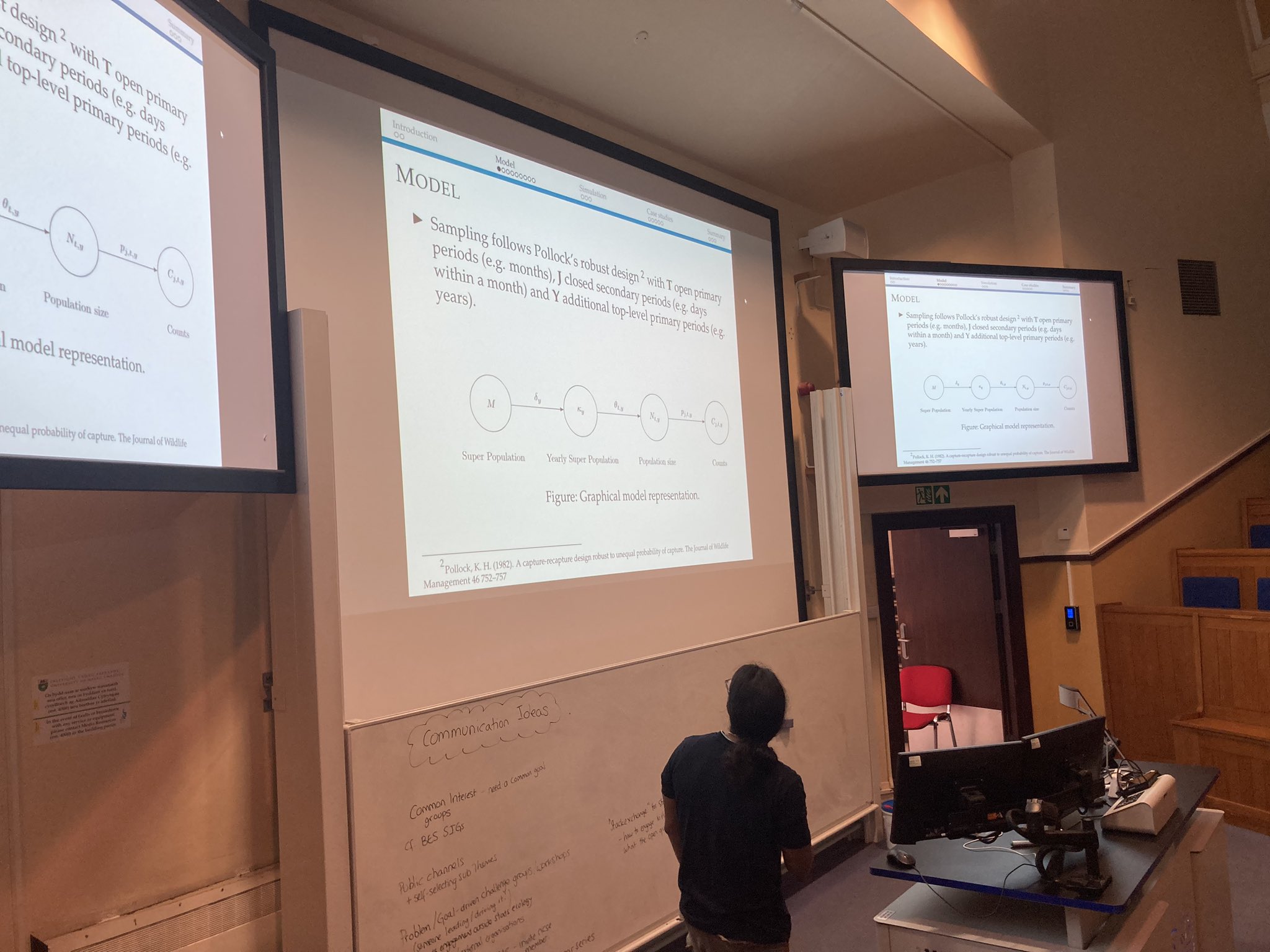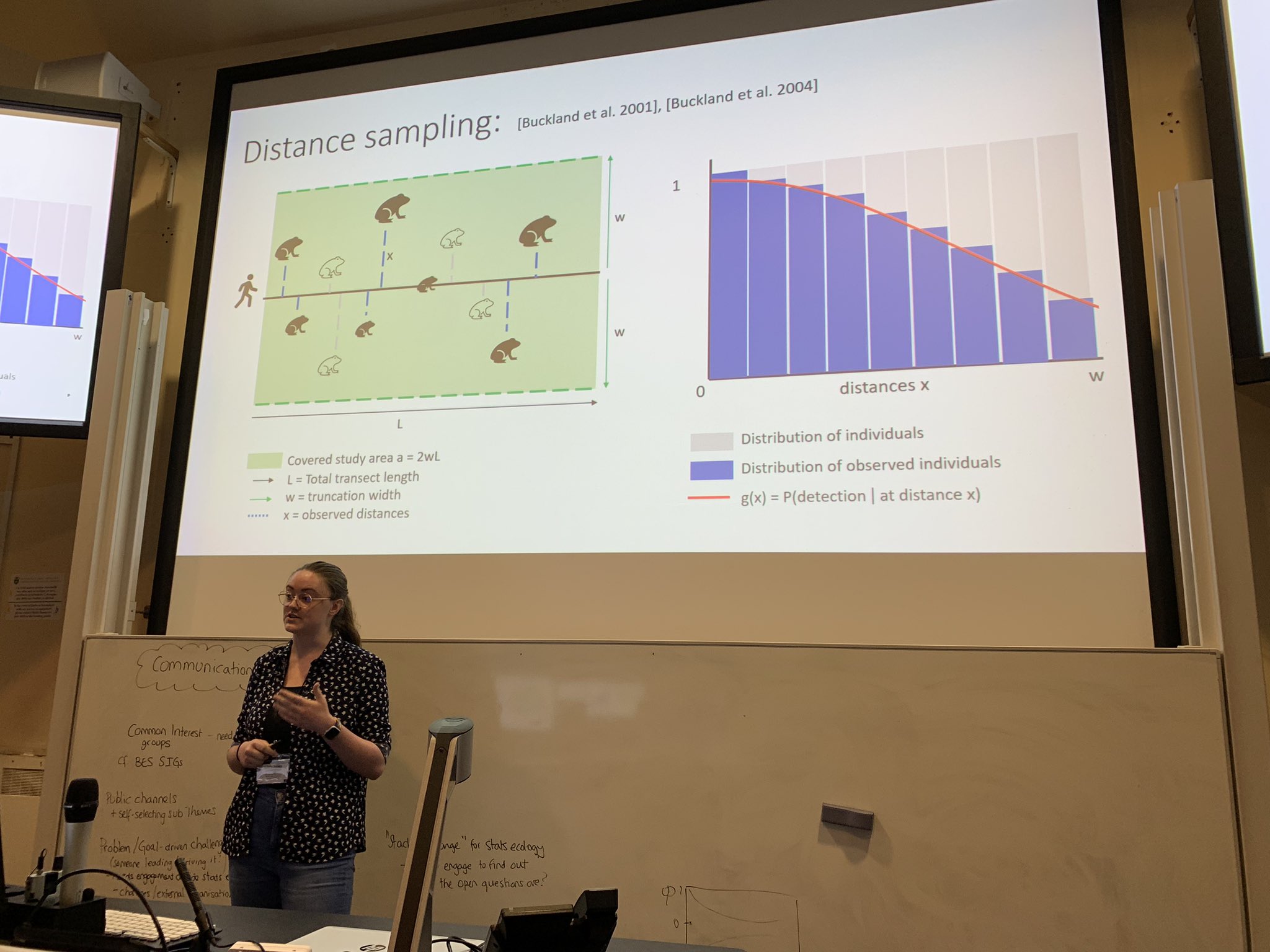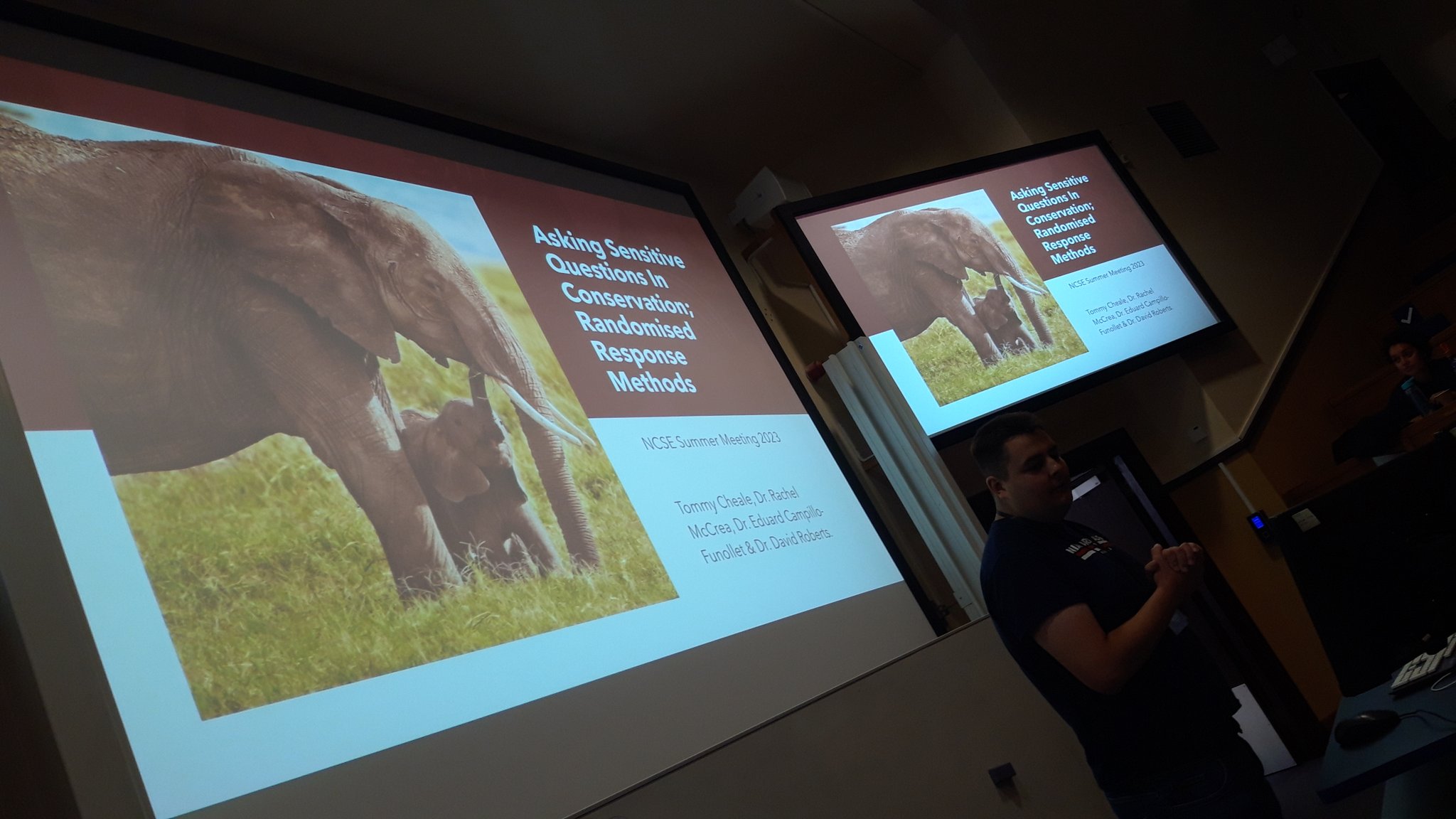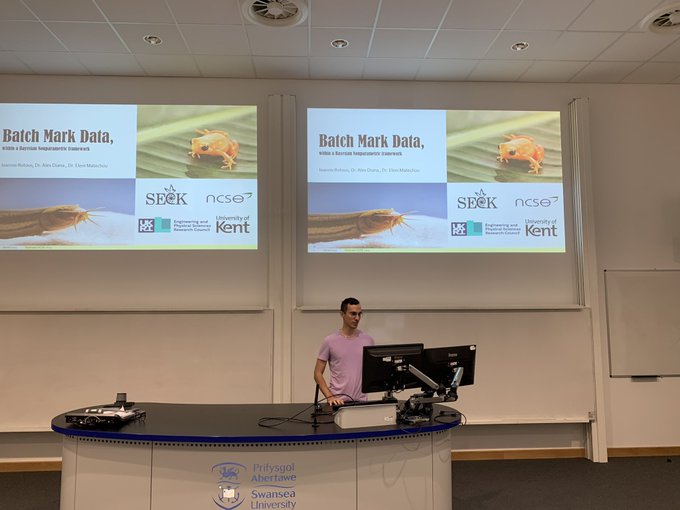The final report of the landscape decisions programme, which funded Eleni’s NERC project
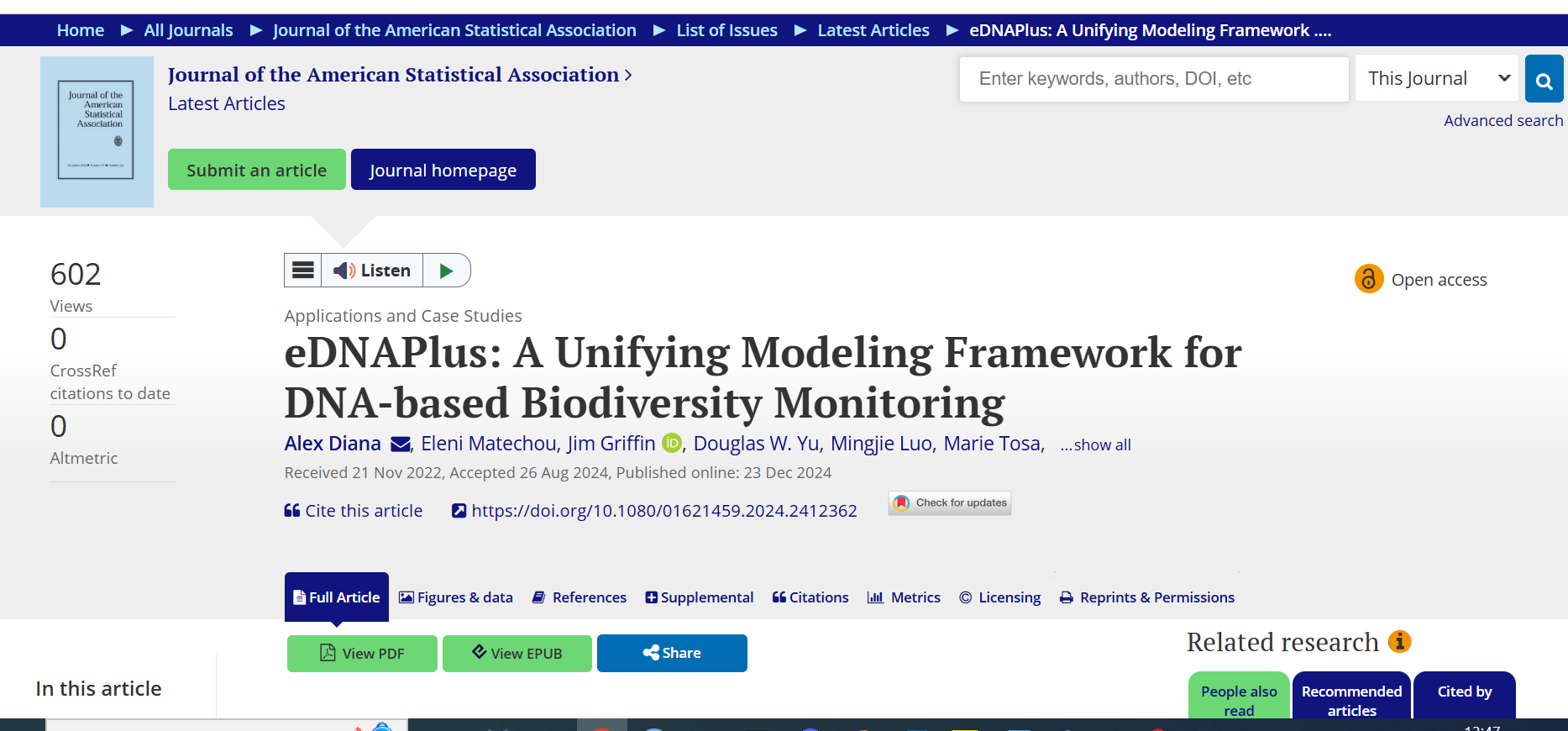
Metabarcoding paper published in JASA
eDNAPlus: A Unifying Modeling Framework for DNA-based Biodiversity Monitoring
by Alex Diana, Eleni Matechou, Jim Griffin, Doug Yu, Richard Griffiths and others.
Abstract
DNA-based biodiversity surveys, which involve collecting physical samples from survey sites and assaying them in the laboratory to detect species via their diagnostic DNA sequences, are increasingly being adopted for biodiversity monitoring and decision-making. The most commonly employed method, metabarcoding, combines PCR with high-throughput DNA sequencing to amplify and read “DNA barcode” sequences, generating count data indicating the number of times each DNA barcode was read. However, DNA-based data are noisy and error-prone, with several sources of variation, and cannot alone estimate the species-specific amount of DNA present at a surveyed site (DNA biomass). In this article, we present a unifying modeling framework for DNA-based survey data that allows estimation of changes in DNA biomass within species, across sites and their links to environmental covariates, while for the first time simultaneously accounting for key sources of variation, error and noise in the data-generating process, and for between-species and between-sites correlation. Bayesian inference is performed using MCMC with Laplace approximations. We describe a re-parameterization scheme for crossed-effects models designed to improve mixing, and an adaptive approach for updating latent variables, which reduces computation time. Theoretical and simulation results are used to guide study design, including the level of replication at different survey stages and the use of quality control methods. Finally, we demonstrate our new framework on a dataset of Malaise-trap samples, quantifying the effects of elevation and distance-to-road on each species, and produce maps identifying areas of high biodiversity and species DNA biomass. Supplementary materials for this article are available online, including a standardized description of the materials available for reproducing the work.
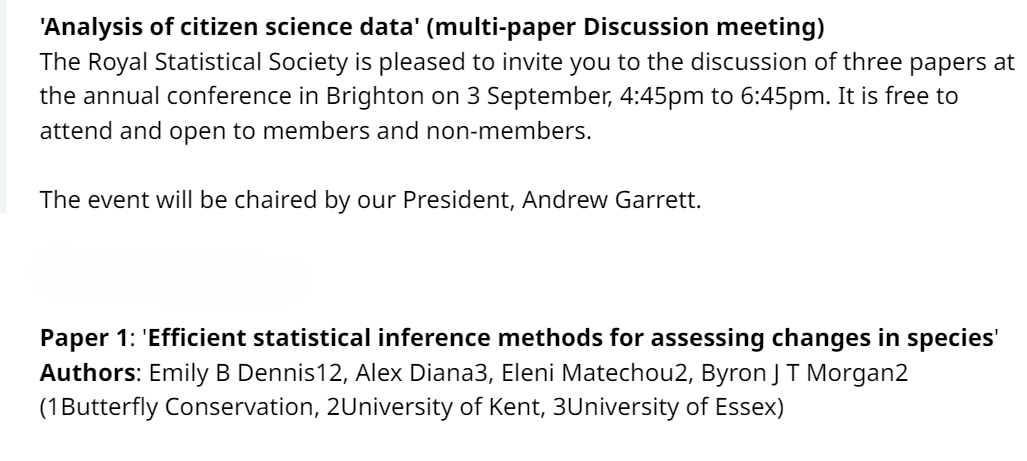
RSS Discussion paper – Analysis of citizen science data
A paper by Emily, Alex, Eleni and Byron was discussed at the 2024 RSS conference in Brighton as part of the multi-paper discussion meeting Analysis of citizen science data.
The meeting was chaired by the president of the RSS, Dr Andrew Garrett.
Alex and Eleni presented the paper, which was discussed by Dr Ben Swallow, St Andrews university, and Professor Kerrie Mengersen, University of Queensland.
Details of the paper are given below
Paper 1: ‘Efficient statistical inference methods for assessing changes in species‘
Authors: Emily B Dennis12, Alex Diana3, Eleni Matechou2, Byron J T Morgan2
(1Butterfly Conservation, 2University of Kent, 3University of Essex)
Download the preprint
Supplementary materials
Abstract: The global decline of biodiversity, driven by habitat degradation and climate breakdown, is a significant concern. Accurate measures of change are crucial to provide reliable evidence of species’ population changes. Meanwhile citizen science data have witnessed a remarkable expansion in both quantity and sources and serve as the foundation for assessing species’ status. The growing data reservoir presents opportunities for novel and improved inference but often comes with computational costs: computational efficiency is paramount, especially as regular analysis updates are necessary. Building upon recent research, we present illustrations of computationally efficient methods for fitting new models, applied to three major citizen science data sets for butterflies. We extend a method for modelling abundance changes of seasonal organisms, firstly to accommodate multiple years of count data efficiently, and secondly for application to counts from a snapshot mass-participation survey. We also present a variational inference approach for fitting occupancy models efficiently to opportunistic citizen science data. The continuous growth of citizen science data offers unprecedented opportunities to enhance our understanding of how species respond to anthropogenic pressures. Efficient techniques in fitting new models are vital for accurately assessing species’ status, supporting policy-making, setting measurable targets, and enabling effective conservation efforts.
Speakers, organisers and discussants enjoyed dinner and interesting conversation at a nearby restaurant.
The session was recorded and is available on the RSS youtube channel (Discussion meetings)

SE@K attending ISBA
Milly, Lucy and Eleni attended ISBA in Venice 1-8 July 2024 where they got to learn about the latest in Bayesian inference, as well as to listen to foundational talks on the topic by some of the most established researchers in the field.

Stats gone wild
SE@K run the established and successful “Stats gone wild” event once more this year, with PhD students Milly, Tommy and Lucy running sessions on removal models, occupancy models and capture-recapture models, respectively.
The day also included a visit and information on hedgehogs by Lisa from Thorne Rescue and three two-week old hoglets!

New paper – Motivations and sensitivities surrounding the illegal trade of sea turtles in Costa Rica
Illegal wildlife trade can threaten biodiversity and economic development. Criminal enterprises may add wildlife products to their list of illicit goods by using established trade routes, networks, and individuals. On the Caribbean coast of Costa Rica, killing of sea turtles and removal of their eggs is commonplace. However, beyond conservation NGOs reporting evidence of illegal take, little is known about this activity. Through semi-structured interviews with law enforcement, community members, NGOs, and illegal harvesters, alongside anecdotal information and observations, we aimed to understand the motivations for illegal take. To cross-reference these findings, we assessed sensitivities surrounding illegal harvesting by asking the general public sensitive questions using the randomized response technique; a method used to elicit sensitive information whilst insuring the anonymity of respondents. We included a questionnaire to establish if differences in demographics affected the probability respondents would admit to a turtle-related crime. Our findings identified a rare example of illegal extraction of a wildlife product driven by motivations that were not exclusively livelihood based. We found the majority of illegal take was undertaken by relatively few individuals, dependent on narcotics. The most cited reason for illegal take was that turtle eggs could be used to procure drugs. Law enforcement was under resourced, and informants reported that prosecutions were rare. Local people preferred to purchase rather than harvest eggs suggesting the trade is supply-driven. Those interviewed did not generally regard the subject of illegal harvest as sensitive. Low education levels, high unemployment rates, and marginalization of certain groups may increase susceptibility to narcotics. Although substance misuse and addiction appear to drive illegal trade, associated poverty and marginalization may explain why drug dependency is so prevalent in Caribbean Costa Rica. Increased work opportunities and drug rehabilitation programs may assist in reducing illegal take of turtle eggs on nesting beaches.
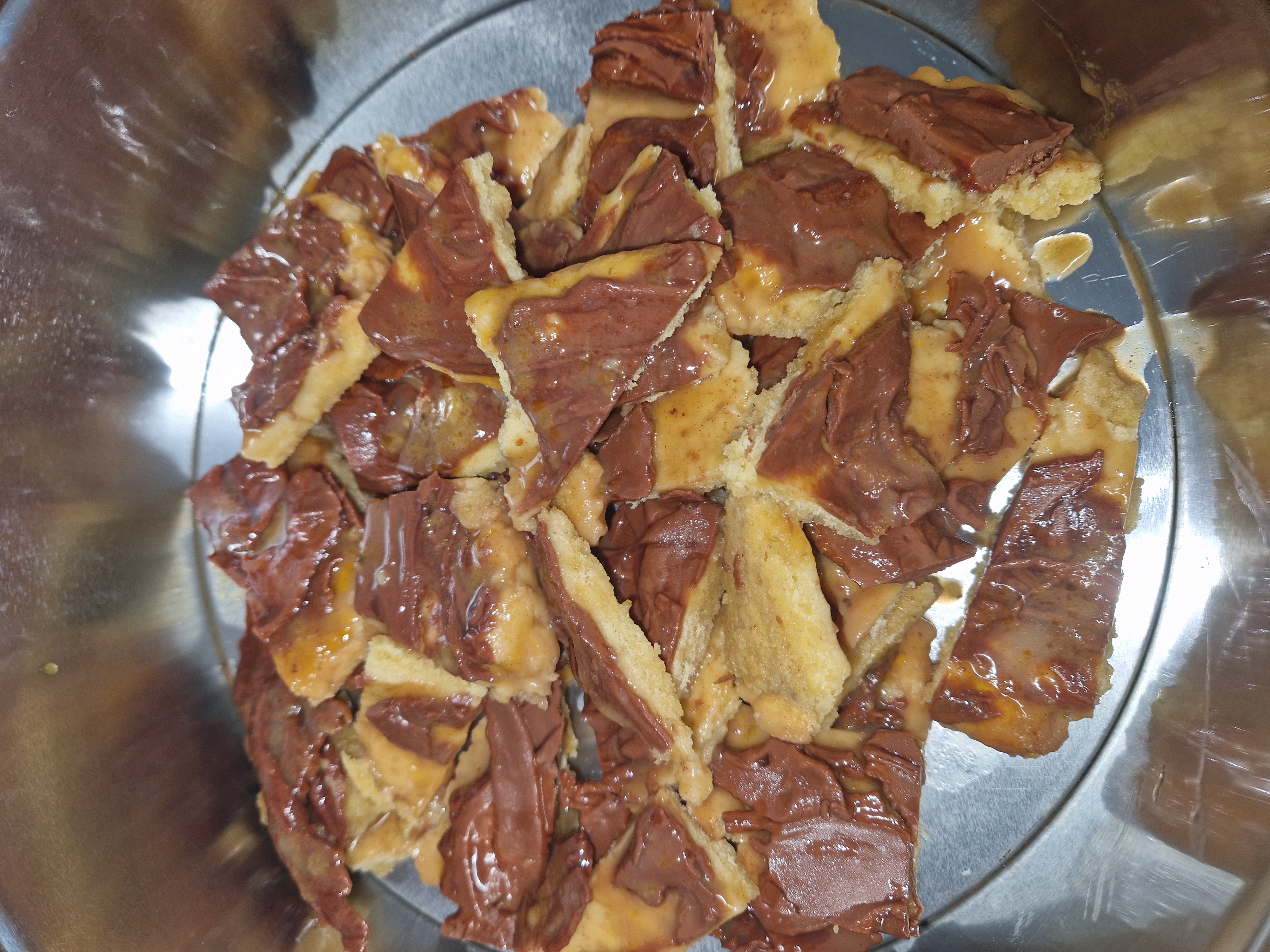
SE@K Thursday research lunch & cake – 2023/2024
For the second term of the 23/24 academic year, we have an exciting plan for SE@K and guest talks:
- 25th Jan Session : Alex Talk ; Cake : Milly
- 1st Feb Session : Meta-Regression ; Cake : Tommy
- 8th Feb Session : Daniel Talk ; Cake : Ioannis
- 15th Feb Session : Talk by Jon Barry from CEFAS on MCMC for machine learning environmental monitoring; Cake : Diana
- 22nd Feb Session : Ioannis Talk ; Cake : Eleni
- 29th Feb Session : TBA ; Cake : Lucy
- 7th Mar Session : Lena Talk ; Cake : Lena
- 14th Mar Session : Tommy Talk ; Cake : Milly
- 21st Mar Session : Milly Talk ; Cake : Ioannis
- 28th Mar Session : Lucy Talk ; Cake : Tommy
- 4th Apr Session : Lunch ; Cake : Diana
The talks in the first term were:
- 28th of Sep Session : Biosciences lecture; Cake : Eleni
- 5th of Oct Session : SE@K intro – all; Cake : Diana
- 12th of Oct Session : Building a website – all; Cake : Daniel
- 19th of Oct Session : Data presentation on Bats – Denise; Cake : Bruno
- 26th of Oct Session : Data presentation on Moths – Denise; Cake : Ioannis
- 2nd of Nov Session : Building a website – all; Cake : Milly
- 9th of Nov Session : RShiny apps – Tommy; Cake : Lena
- 16th of Nov Session : Ioannis’s paper; Cake : Lucy
- 23rd of Nov Session : GLMMs for moths; Cake : Eleni
- 30th of Nov Session : Monty & Jake – Satellite data; Cake : Denise
- 7th of Dec Session : Daniel I. and team – Wildmeat & agent-based modelling; Cake : Diana
- 14th of Dec Session : Meta-regression; Cake : Daniel
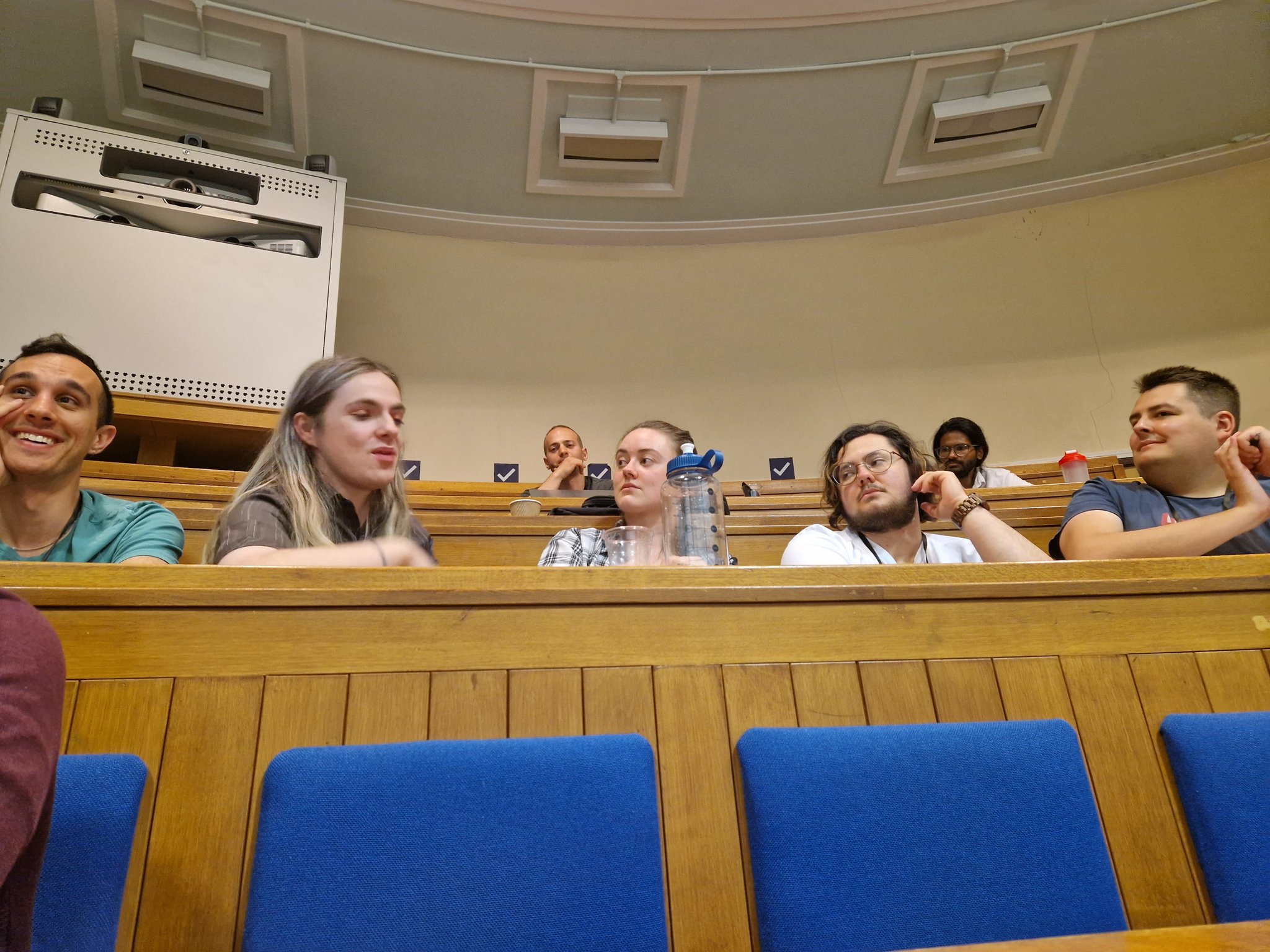
SE@K at NSCE Summer Meeting
Several members of SE@K attended the NSCE summer meeting 26th-28th June in Swansea.
Diana Cole gave a presentation on “Bayesian Identifiability in Ecological Models”
Byron Morgan gave a talk entitled “Bucking the trend”
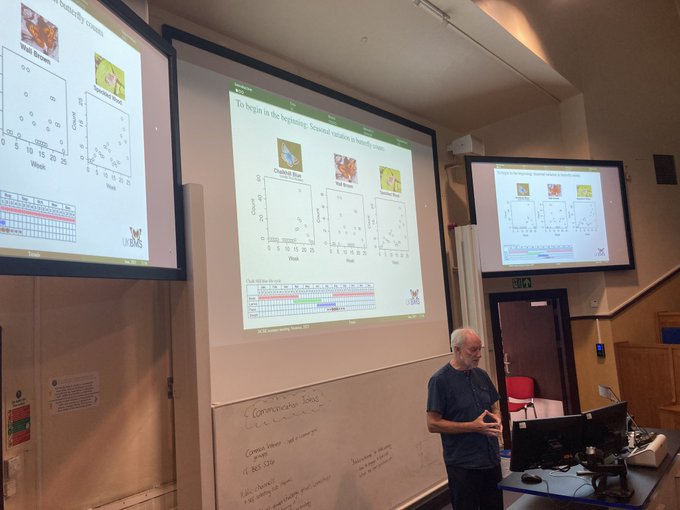
Fabian Ketwaroo talked about “Modelling roost count data”
Milly Jones talked about “Bayesian multi-species hierarchical distance sampling: Density estimation of
vertebrate species in Betampona Madagascar”. Her talk was runner-up in the student presentation competition.
Thomas Cheale’s talk was on “A General Framework for Balancing Privacy and Variance in Randomised
Response Methods”
Alex Diana talked about “Modelling DNA-based survey data”
Ioannis Rotous’ talk was on “Bayesian nonparametric models for batch-mark data”
They also enjoyed the sights in Swansea and the Welsh countryside